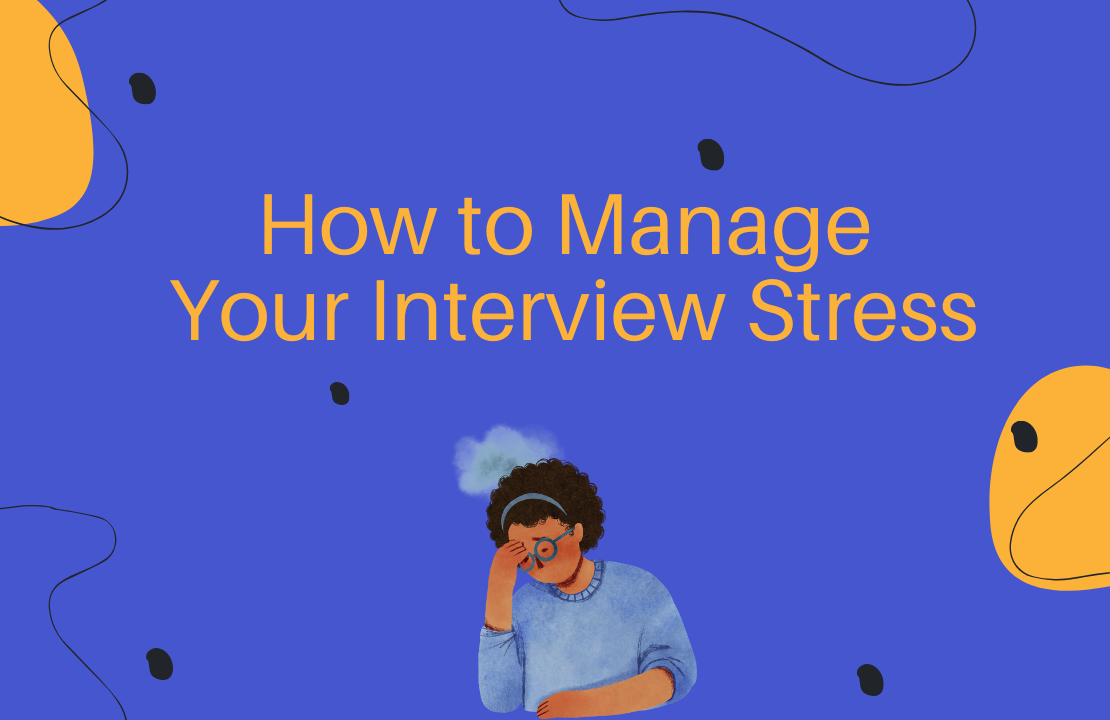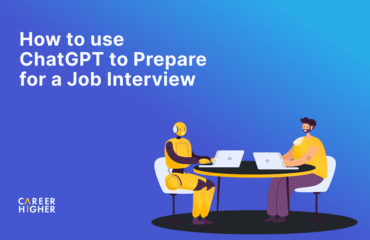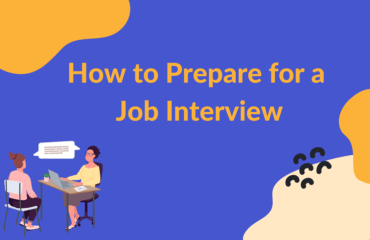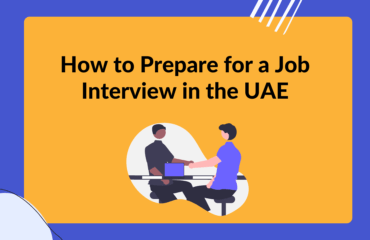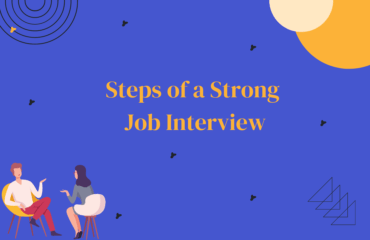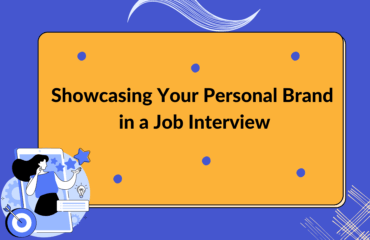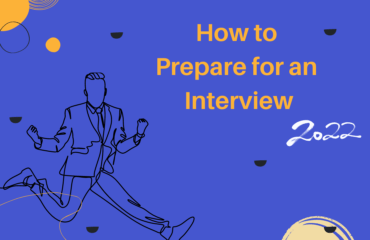Table of Contents
Candidates who interview for a position only have a 20% chance of getting a job offer. This can create a sense of uncertainty and fear, which ultimately leads to stress. Interview stress is a feeling of emotional strain that comes with the pressure to perform well in a job interview. A survey revealed that 93% of job seekers in the US experienced anxiety in their interviews.
Contrary to popular belief, not all stress is bad. According to research, the right amount of acute stress primes the brain for improved performance. This means it can help you stay focused and ready to ace your interview. However, too much of anything is bad. While it may be impossible to eliminate stress, there are ways to manage it to ensure your interview won’t be negatively impacted. If you’re unsure how to follow our tips below.
1) Create an interview preparation checklist
When people feel that they are not in control, they start to feel anxious. One of the best ways to overcome this is through an interview preparation plan. Being prepared can give you the feeling of being in control of the situation. In addition, it provides you with the perception of confidence that you’ll do well in the interview. In turn, it reduces fear and stress. The more prepared you are, the better.
We recommend creating a checklist when planning for your interview preparation. This helps in keeping things organized, reducing the likelihood of important details and documents getting overlooked. Having fewer details to think about on the day of the interview means less stress for you. Here are some of the things to consider including in your checklist.
- Research the company and the interviewer
- Print out copies of your resume and other documents required by the interviewer
- Think about what to wear for the interview
- Write down the interview schedule and the hiring manager’s name
- Note the company address or location of the interview
2) Practice beforehand
According to a study, not being able to answer a difficult question is one of the things candidates are most nervous about in interviews. To ease your nerves, practice your answers before the interview. Although practice might not necessarily make your interviewing skills perfect, it certainly is an important step for reducing your anxiety and boosting your confidence.
Take the time to familiarize yourself with common interview questions. Review your resume and think about the details that may raise concerns among interviewers. Some examples include employment gaps, too frequent job changes, and career that has gone backward or plateaued. Then, work on preparing and writing your responses.
To make the most of your practice, mental rehearsal alone may not do the trick. Make sure to incorporate hands-on practice. An effective way to do this is through a mock interview, where an interview-like scenario is simulated. Some good examples of interview preparation partners include career strategists, mentors, colleagues, friends, and family members.
Recording yourself and watching the video take is another good way to practice. Observe your body language, pronunciation, and tone. Do they support the message you are looking to convey about yourself as a candidate? Do you look nervous or stutter while you speak? Once you’ve identified opportunities for improvement, make sure to correct them. As you become more comfortable and confident with your answers, the feeling of worry, unease, or fear reduces.
3) Arrive early at the interview
Arriving late to an interview is one of the behaviors that most hiring managers view negatively. Tardiness creates a bad first impression that may diminish your chances of securing a job offer. It does not only make you look unprofessional, but it can also make the interviewers feel disrespected for keeping them waiting. According to a report, 93% of hiring managers said that being tardy for an interview is unacceptable to them. Another study found that it is among the top ten causes of stress among adults.
To avoid stress due to being late, arriving early is the best anecdote. If it’s a face-to-face interview, give yourself plenty of travel time. Map your travel route and check the traffic reports. For virtual interviews, check and test the equipment and technologies you will use before the actual interview. Either way, arrive at the interview at least 15 minutes early.
In case you’re going to be late due to an avoidable circumstance, don’t beat yourself up to stress. There are still ways to redeem yourself. If you’re running behind schedule, inform the interviewers as soon as you can to show respect for their time. Whatever your reason for your tardiness is, own up to your shortcomings. Instead of making excuses, reach out to the interviewer and apologize for being late.
Taking responsibility and apologizing for your tardiness won’t guarantee a second chance for an interview. However, it’s always better to go above and beyond than to leave interviewers with a bad impression of your time management skills. In addition, it can help reduce your stress knowing that you did what you could to redeem yourself.
4) Build rapport with your interviewer
Difficult questions are typically anticipated in a job interview. This gives the hiring manager an opportunity to assess whether you have what it takes to do the job. Even if this is the case, it doesn’t need to feel like you’re battling a shark, which can make you feel worried and stressed. Instead of approaching your interview as a demanding test of your intellect, assume the best intentions. Think of the interview as a conversation between you and the hiring manager who are trying to get to know one another.
Building rapport allows you to establish a connection with your potential employer. This helps you feel more relaxed during the interview. Additionally, it leaves a positive lasting impression and makes you stand out from the competition. In turn, it puts you in a better position to win the job. Try the tips outlined below.
- Research the interviewer beforehand as it’s easier to establish a connection with someone you have something in common with.
- Maintain a light smile for most of the interview, which can make you appear more likable.
- Make eye contact to show that they have your full attention.
- Find opportunities to engage in small talk, focusing on the things that connect you with them.
- Listen actively to make the interviewer feel heard and valued.
5) Use deep breathing techniques
According to health and medical experts, our body goes into “fight-or-flight” mode when we feel stressed. This makes our adrenal glands release the hormones cortisol and adrenaline. As a result, our heart beats faster and blood pressure rises. So, when you notice that your heart rate increases during an interview, you’re experiencing a physical symptom of stress.
Stress can impact how you think and feel. Hence, managing your anxiety is imperative to ensure you will be at your best during the interview. The good news is that there is a simple and convenient way to do it – a breathing exercise! It is an easy and effective way to reverse your stress response.
Once the interviewer asks a question, avoid talking immediately. Take one discreet deep breath between your answers. When you breathe deeply, it sends a signal to your brain to calm down and helps you maintain focus. In turn, you are likely to appear more relaxed and confident during your interview.
6) Embrace positive self-talk
As they say, words are powerful. So, we need to choose them wisely. In the book “Words Can Change Your Brain”, the authors explained that positive words encourage cognitive brain function. On the other hand, negative words activate our fight-or-flight response, which may trigger stress. Similarly, focusing on the negative interview scenarios that could happen might make you feel more anxious.
Here is a fact. Even with the best interview preparation plan, you’re unlikely to secure an offer hundred percent of the time. While the outcome of the interview is uncertain, there are many things you can control. This includes your thoughts and the words you choose to tell yourself. According to mental health experts, positive thinking and self-talk can be beneficial in reducing stress and improving performance.
For example, rather than saying “I’m so nervous about my upcoming interview”, try “‘I’m so excited about the interview”. Instead of focusing on the things that can potentially go wrong in your interview, focus on doing your best. When your interview is over and you think it went badly, don’t beat yourself up with “I’m disappointed with how my interview went”. You can tell yourself, “My interview didn’t go as expected, but I’ll do better next time.” This won’t change the outcome, but it enables you to be open for improvement and motivates you to ace your next interview.
Job interviews are not a walk in the park, and it’s perfectly normal to feel anxious. However, letting yourself be overwhelmed by this emotion increases its likelihood of affecting your performance. When you take the time to be well-prepared, breathe, and reframe your negative thoughts, you will feel more relaxed and confident in your interview. If you need an interview preparation guide, you can always reach out to us for help.
